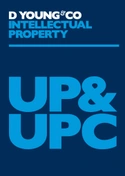AIM Sports strikes out: Supponor under fire
Advertising at sporting events is big business. It is reported that the advertising market for soccer alone is estimated to be worth almost €100 million. The advertising boards around the outside of the pitch are viewed by a global audience. However, advertisers on the in-stadium advertising boards may not always sell their goods or services in the overseas countries where the match is broadcast. Therefore, virtual advertising allows the in-stadium advertising boards to be replaced in live broadcasts overseas with alternative content.
This is a particularly niche area of technology, and two of the major players in this area have had an ongoing patent dispute in Europe over the last couple of years.
AIM Sports and Supponor
AIM Sports issued various patent infringement claims against Supponor, alleging that the Supponor SVB System infringes a number of national patents derived from EP 3 295 663 B1.
This European patent relates to technology associated with occlusion. In other words, when a player runs in front of the in-stadium advertising board, the virtual advertising must account for this in the live broadcast. Patent infringement actions have been brought in the German court, the UK court and more recently the Helsinki Local Division of the Unified Patent Court (UPC).
Germany proceedings
In Germany, virtual advertising technology has been in use since 2015. Both AIM Sports and Supponor have their technology approved for use in Germany by the German Football League, with major German clubs working with one or both of Supponor and AIM Sports.
At the time of the action, Supponor worked closely with a sport marketing company called Sportfive in the field of virtual marketing of advertisements for Bundesliga clubs; Supponor provided the technology whilst Sportfive marketed the ad spaces globally.
AIM Sports brought parallel actions against both Supponor and Sportsfive for infringement of its patent in Germany.
In March 2022 the Munich Regional Court found that London-based Supponor infringed AIM’s patent, and ordered the company to discontinue sales, pay damages, provide information and destroy the products. In addition, in the parallel action, Sportfive was banned from using Supponor’s technology. In the summer of 2022 a hearing held that AIM Sport’s patent was valid.
Both the infringement and validity decisions are currently under appeal.
United Kingdom
In February 2023, the English High Court (Meade J sitting) held that the United Kingdom designation of EP 3 295 663 B1 was both valid and infringed. There was an interesting procedural point during the trial. Supponor alleged that AIM Sports should not be allowed to assert that claim 12 was valid, because it had previously accepted that claim 1 was invalid and that neither claim 1 nor claim 13 would be defended.
However, since claim 13 was very similar to claim 12, Supponor’s position was that the latter must also be invalid. Supponor relied on an earlier decision from Meade J in Promptu v Sky [2021] EWHC 2021 (Pat), wherein he noted that the patentee was trying to act inconsistently with a previous concession it had made regarding claim validity.
In contrast, in this case, the judge confirmed that he did not purport to decide any point of principle in Promptu, and in any event that he considered Supponor’s argument was erroneous in three respects.
- AIM Sports in fact had not admitted claim 13 was invalid if claim 1 was, but rather had dropped claim 13 for pragmatic reasons;
- AIM Sports had not admitted that claim 12 was invalid if claim 13 was; and
- AIM Sports had never admitted that claim 12 was invalid in any event.
In closing, the judge heeded that patentees ought not to be discouraged from narrowing down their case by making admissions about claims in the way AIM Sports had done for fear of unforeseen consequences.
The decision is under appeal with a trial date set for spring 2024.
Product development
It is interesting to note that just after the issuance of the infringement decision in Germany, the German Football League approved the use of a new generation of the product by Supponor called the Supponor Air which, unlike the Supponor SVB, is entirely software based.
The Supponor SVB (the product found to be infringing the patent in Germany and the United Kingdom) required some dedicated perimeter technology and camera systems. However, the Supponor Air does not require any dedicated hardware.
Supponor has indicated that it does not feel this new generation of technology infringes the patent, and confirmed in February 2023 that it has discontinued sales of the infringing product. Of course, whether AIM Sports agrees that this new generation does not infringe remains to be seen.
UPC
In July 2023, AIM Sports filed an infringement action against Supponor (UK) and several of its subsidiaries at the Helsinki Local Division for a preliminary injunction against the Finnish subsidiary of Supponor.
This particular aspect of the dispute is interesting from a UPC perspective, as the EP patent was initially opted out of the UPC on 12 May 2023 (after the German proceedings had commenced), and the opt-out was withdrawn prior to the infringement action being filed. Although the infringement action had many aspects to it, the court actually only focussed on one; did the UPC have jurisdiction over the case at all?
The point at issue was whether the opt-out withdrawal was valid.
Ultimately, it was decided that AIM Sports was not permitted to withdraw the opt-out.
This particular point of law is considered in more detail in our article, UPC: four months since the start, what have we learnt?
It is unclear why AIM Sports changed its mind and tried to bring an action before the UPC.
It may be that with the success it had in the German and UK courts the possibility of an injunction covering all the UPC contracting states with one action could have been appealing. However, with Supponor stating that it discontinued sales of the infringing product, such an injunction for ongoing sales would not have been very powerful.
Alternatively, the UPC action may have been brought because Union of European Football Associations (UEFA – football’s European governing body) is currently tendering for various technologies for 2024 onwards, and AIM Sports may feel that bringing an action before the UPC could strengthen its commercial position against Supponor in any tendering process.
Conclusion
In many situations where there is a very limited number of competing technologies, and these are aiming for the same market, the injunction is more commercially important than the damages. This is because one of (if not the only) competing technology is removed from the market, allowing the patentee to control the market. However, in this case, the power of the injunction was dramatically reduced by the infringer releasing a product that, it claimed, did not infringe the patent.
It remains to be seen if AIM Sports will allege infringement of its patents by the new generation of Supponor products. If it does then the battle between these two companies will begin again.
We will report when the various Courts of Appeal issue their decisions in the coming months.


